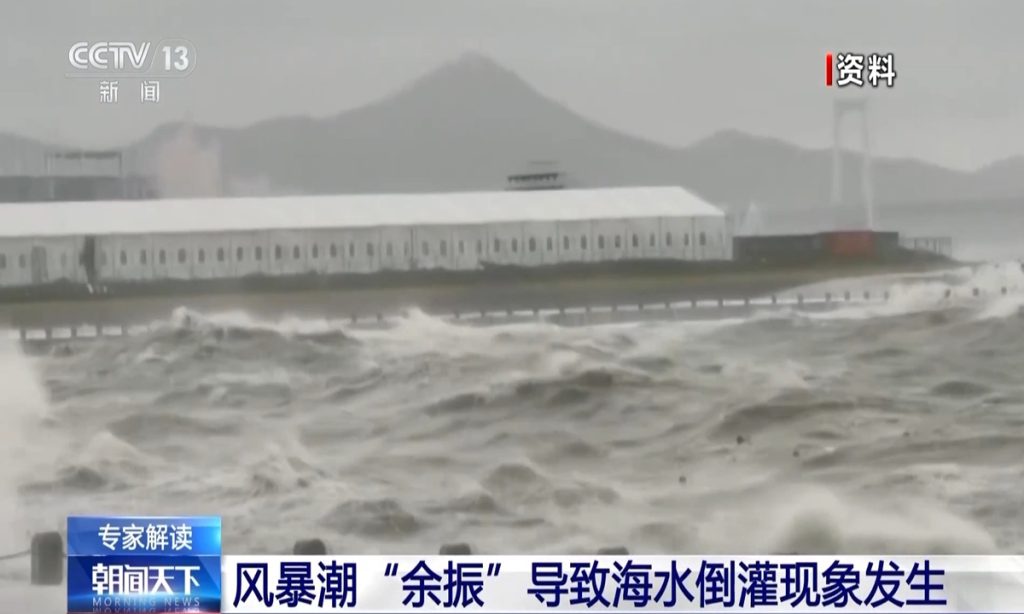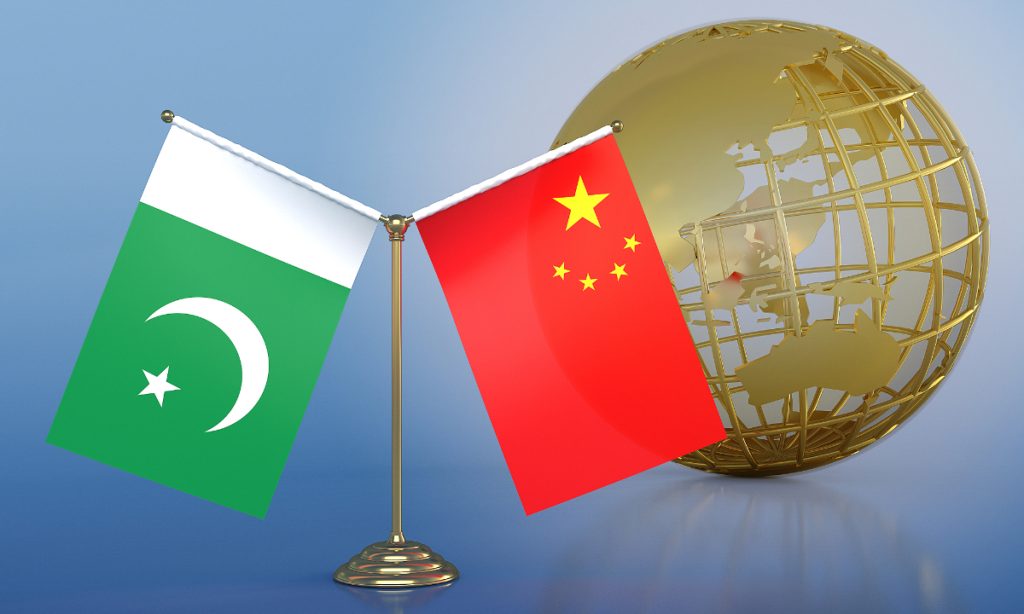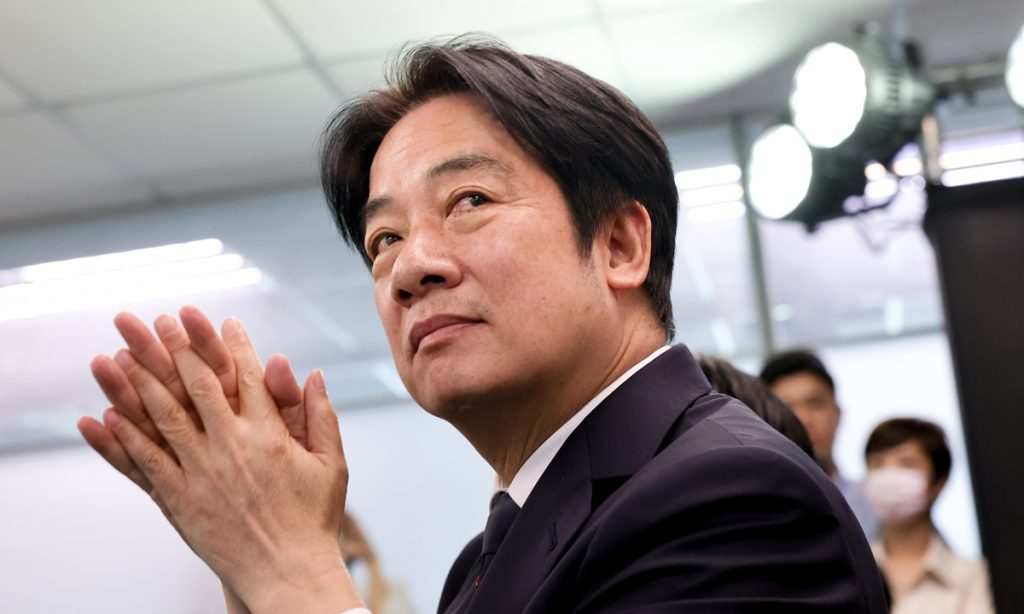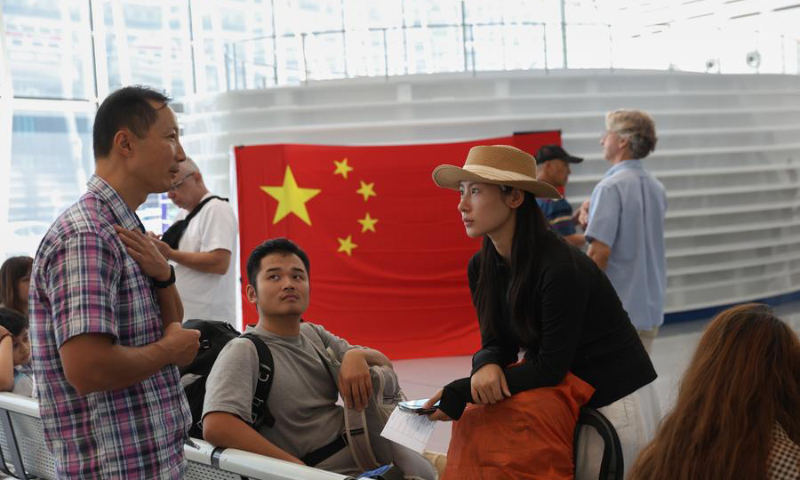Seawater backflow in coastal cities a result of combined influence of weather, tide: experts

Multiple coastal cities in Northeast China's Liaoning Province and North China's Hebei Province suffered from flooding on Monday due to the backflow of seawater from the coast to inland, which experts explained as a result from combined influences of weather conditions and tidal phenomenon.
On Monday, coastal cities including Panjin and Dalian in Liaoning and Tangshan in Hebei suffered flooding by seawater encroachment, while other cities including Qinhuangdao in Hebei and Yantai in East China's Shandong Province along the Bohai Sea and the Yellow Sea recorded tides reaching the highest warning levels.
As of Tuesday morning, seawater had receded, and no casualties have been reported in any of the affected areas, China Central Television (CCTV) reported. China's Ministry of Natural Resources activated on Monday a Level IV emergency response for marine disasters, dispatching five expert teams to Liaoning, Tianjin, Hebei and Shandong to assist local authorities in verifying abnormal water level rises along certain coastal areas and to conduct disaster investigation and assessment.
From Sunday evening to Monday afternoon, tide stations in the central and northern parts of the Bohai Sea and the Yellow Sea recorded water level increases of 80 centimeters to 160 centimeters, with no significant weather events occurring, the Global Times learned from China's Ministry of Natural Resources.
This abnormal water level rise of around 1 meter in these areas turned out to be severe and lasted for an extended period of 20 hours. With this situation combined with the astronomical tide several stations in Liaoning saw record-breaking water levels in the early hours of Monday with backflow of seawater occurring in multiple places in Liaoning and Hebei provinces and Tianjin Municipality.
Jiang Wensheng, dean of the College of Environmental Science and Engineering, Ocean University of China, told the Global Times that due to the combined influence of celestial bodies, including the sun and the moon, seawater undergoes one or two natural rises and falls each day, commonly known as the tidal phenomenon.
Meanwhile, weather conditions are also an important factor affecting sea level rise, with winds, changes in air pressure and other weather conditions leading to storm surges that cause sea level fluctuations, Jiang said.
If the sea level rising due to weather factors coincides with a high tide, the sea level can become unusually high, Jiang explained.
Additionally, sea level fluctuations caused by weather factors can continue even after the weather event ends, a phenomenon referred to as the "aftershock" of a storm surge. The recent seawater backflow in multiple areas was the result of the impact from these "aftershocks" of storm surges, Jiang said.
Although the rise of the sea level was significant when the wind was stronger and the weather event was intense, this did not coincide with the high tide. Instead, the following storm surge "aftershocks" coincided with the high tide, resulting in this seawater backflow.
The provincial marine monitoring center in Liaoning issued multiple sea wave alerts in the Bohai Sea and the Yellow Sea over the past few days, warning of big waves of 2.5 meters to 4 meters in coastal areas, according to the local maritime safety administration.
The National Marine Environmental Forecasting Center also forecast storm surges from Monday to Tuesday, affecting cities including Dandong, Dalian, Panjin and Jinzhou in Liaoning and Weifang in Shandong.








